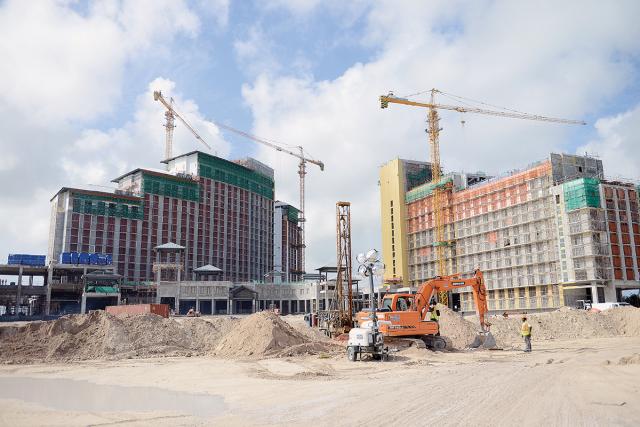 Minister of Financial Services with responsibility for trade and industry, Ryan Pinder, recently participated in the Caribbean Exporters’ Colloquium organized by the Caribbean Export Development Agency (CEDA).
Minister of Financial Services with responsibility for trade and industry, Ryan Pinder, recently participated in the Caribbean Exporters’ Colloquium organized by the Caribbean Export Development Agency (CEDA).
Addressing government officials and industry leaders in the region, Minister Pinder led the charge for regional economic integration. He told delegates, “in order for our people in the region to benefit and appreciate regional integration, we must be successful at economic regional integration. Without the creation of opportunities for our people on an economic basis, meaning employment, the chance to build careers, entrepreneurial opportunities, and business expansions, regional integration cannot succeed.”
Presenting the arguments relative to the intra-regional trade policy, Minister Pinder highlighted that the intra-regional trade has been challenged by a high dependence on foreign markets for industrial inputs and a historical colonial heritage that has caused our countries to develop as an economic complement to our European counterparts. Despite the challenges experienced regionally, Minister Pinder said, “I believe the success of regional integration lies in the ability for us to leverage our respective assets and expertise to develop a regional trade for global export, not exclusively for intra-regional purposes.”
Minister Pinder further proposed that the region strongly pursue a model of regional trade integration through production based on value-chain trade, but within the context of and using the foundation Article 238 on Regional Preferences in the Economic Partnership Agreement (EPA). The Minister asserted that the adoption of this model would reap the benefits of increased exports collectively as a region or group of countries.
“In my opinion, economic regional integration is based in part upon the successful implementation of a regional value added trade, or value chain trade strategy built upon the framework of the EPA, which because of its unique characteristics, causes for trade preferences both regionally as well as internationally with the European Union,” stated Pinder.
While highlighting the benefits of intra-region value-added trade strategy, Minister Pinder shared that he has been in discussions recently with a number of Ministers of Trade within the region on building ties and strengthening trade between respective countries and utilizing the value-added strategy.
The focus of these discussions was to determine the strength of expertise in each country, be it agriculture, raw materials for refinement, logistics or ease of access to the international markets. Pinder stated that “within the context of the value-added trade strategy, every country has an opportunity to bring something to the table to create a product for eventual export. Working together for the overall success of international trade while building successful, sustainable and effective regional integration one step at a time. This approach encourages the development of new inter-linked industries between our countries.”
Minister Pinder expressed the fundamental importance of regional integration to the Caribbean. “We as a region must cause for strategies to adapt and adjust, especially in the context of trade, to ensure that we as a region get to the forefront of the international paradigm, to cause in a regionally integrated fashion, the lifting up of our respective countries.”
The two-day Caribbean Exporters’ Colloquium took place on 20-21 March 2013 in Bridgetown Barbados.
By Bahamas Information Services



